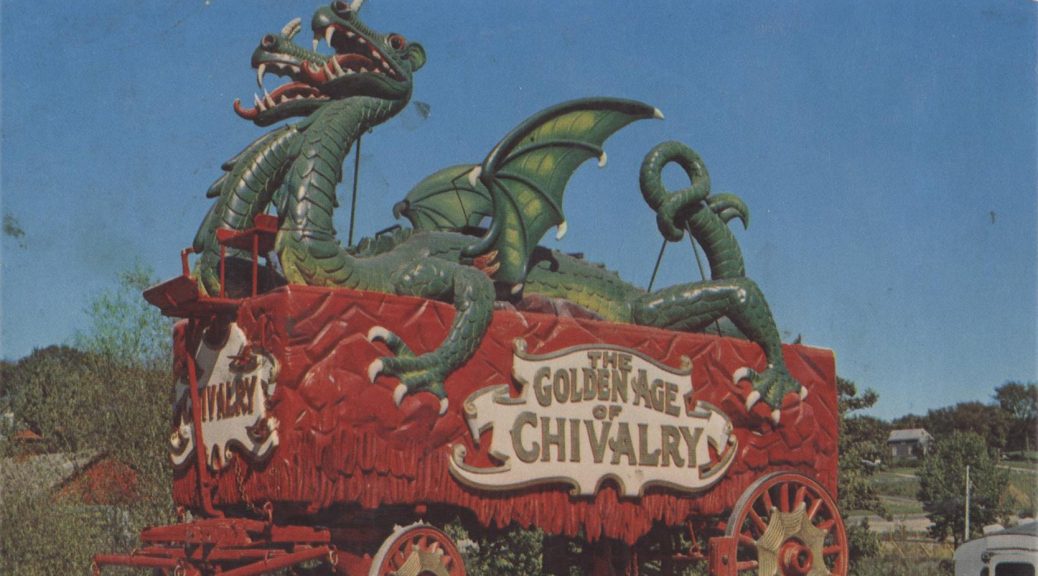
Dungeons & Dragons Changed the Storytelling Experience For Me
This post is an expanded and better thought-out version of a Twitter-thread I blasted out the other day that I realised I could quite easily expand on a little talking about how playing Dungeons & Dragons has somewhat shifted the way that I look at the composition of fantasy stories.

The other night I went to bed early with a suspected (mild) migraine and ended up reading to get away from screen glare for a bit. I picked up Red Seas Under Red Skies from where I last left off and had a small observation: Fantasy fiction feels so much different since I started playing D&D and watching Critical Role. Let me explain. Well sort of, I’m only a blogger, after all.
In the past when I’ve read books, I read from beginning to end, like most of us do (I’m onto you, people who skip to the last page). As such I would read the story in the linear form it is presented, with the dialogue, scene setting, character building and all of that becoming a bit mushed together, and any flashback chapters and perspective changes always felt a little disjointed to me. It took a lot for an author to write with these sudden switches and not dislodge me.
However, when I’m thinking in terms of dice rolls for how “NPCs” react and character actions work out and character development and backstory reveal over time and boss battles and levels and allll that, the nuances feel that much more visceral and impactful. Like I’m thinking about how each of these things come about in the book as though it’s a part of an RPG campaign and appreciating each little thing that much more for the fact that it could have played out differently and caused a completely different story, and that is kinda fascinating to me.

I’m not even entirely sure why I’ve found myself taking stories in this way. Perhaps it’s because our group very much treat D&D like a group storytelling exercise within a game, so going off of how my character, and my friends’ characters, react to environments and circumstances and what attacks and abilities we choose to use and how they play out, I’m starting to recognise that in other stories and appreciating them as smaller parts of a grander tale, rather than the much of a narrative I previously experienced. And heck, you guys, if I can take in flashback chapters and different character perspectives from the point of view of backstory reveal and different party members’ having their time to shine, perhaps I can finally accept these previously frustrating (to me) storytelling elements!
My new perspective on storytelling elements does include video games as well, which may be part of why I’ve felt less inclined to play them recently. I’ve always thought of video games as worlds to explore and figure out as you go, but since playing D&D they feel a little less open than they may have previously, and this is something I know I’ve talked about with Wolfy (though I can’t remember our conclusion to that thought), but I feel as though it’s related to the limitations of a game engine when compared with the human imagination. There will always be limitations within video games that break immersion, as cool as it is to see, hear, and experience these worlds for ourselves. I’m not saying I’m “over” video games or anything, but I am seeing them in a new light and it’s kind of a strange feeling.
Mostly, though, I just found it interesting how our perceptions of the construction of a story can differ across mediums and over time. Will I always experience stories this way? No, I highly doubt it, but I will always enjoy how the process changes.

What about you guys? Am I actually making any sense? How do you perceive the specific elements of a story? Whether that be a co-op storytelling experience like Dungeons & Dragons, books, video games, movies, or whatever. I’d be really interested to hear how you experience this stuff!
2 thoughts on “Dungeons & Dragons Changed the Storytelling Experience For Me”
It was the same thing for me back when I was getting into tabletop RPGs back when I was a teenager. Games felt limited in a lot of ways. Tabletop RPGs also opened my world to a lot of genres that were completely unfamiliar to me too, like Cyberpunk, post-apocalypse, Cthulhu, etc.
It also made me appreciate even more the authors who go out of their way to build their fictional worlds, like Tolkien or Sanderson. 🙂
Eventually I got over that, mostly because I was never able to successfully get a tabletop group together. For the most part it was due to my own fault due to my ADD and impulsive nature. The other reason is because the roleplaying culture here is tiny compared to, say the USA, so finding people interested in playing is always an uphill battle.
Still tabletop RPGs will always have a special spot in my heart. That is one of the things that will never change. 🙂
You can totally do the thing online via Roll20 and Discord and such these days if you really wanted to get back into it, that’s how we’re able to play with Wolfy and Jamie across the seas in the US of A. 😀 I love how inclusive tabletop gaming is becoming. I totally hear you on the impulsive nature part, though. I have a lowkey fear that I’ll get bored of it at some point. I don’t think I will, but it would REALLY suck if that happened. I think the fact that it’s a shared experience with people I love particularly helps.
Also yes! I will never cease to be amazed at how much Tolkien and Sanderson put into their worldbuilding. Love them.
Comments are closed.